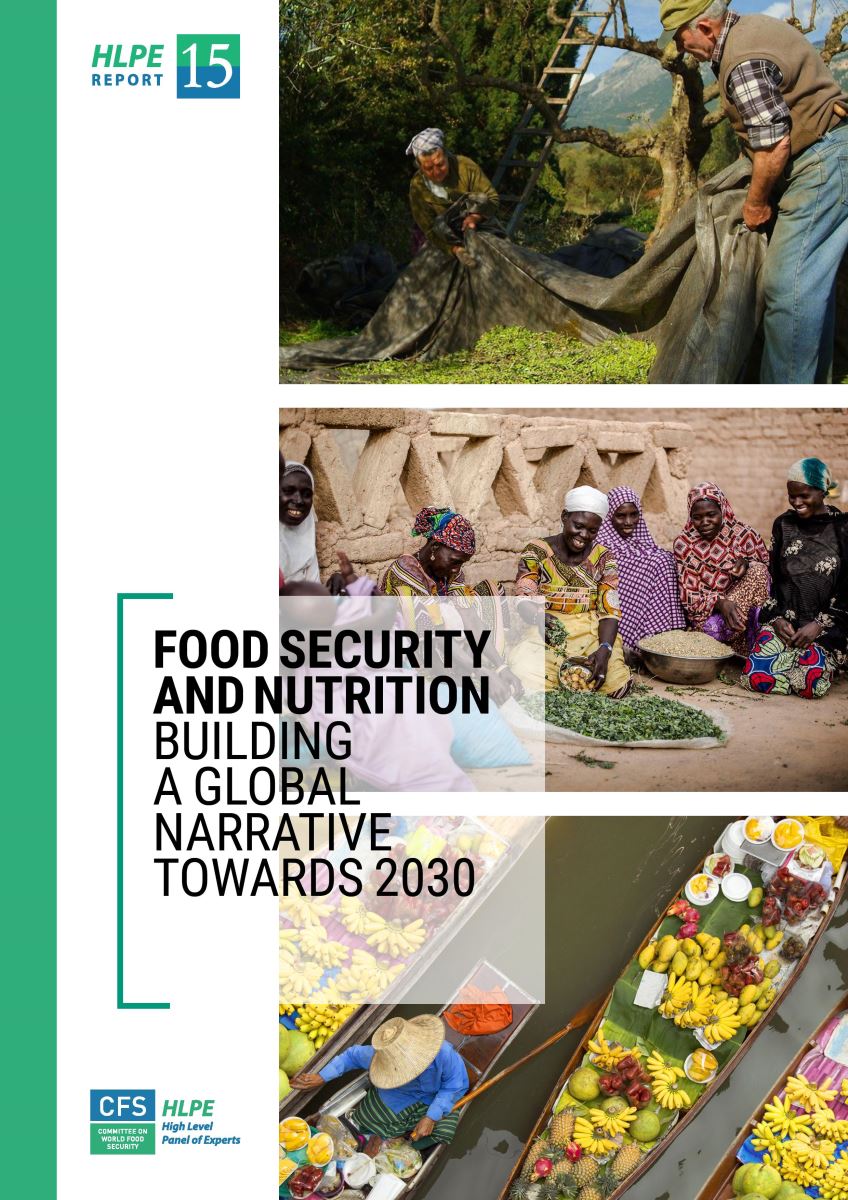Publication date:
19 | 07 | 2024
This summary provides an overview of the key points from the HLPE report, focusing on the urgent need for transformative policies and actions to achieve global food security and nutrition by 2030 .

Introduction
The High Level Panel of Experts on Food Security and Nutrition (HLPE) released a comprehensive report in 2020, highlighting the urgent need to transform global food systems to ensure food security and nutrition for all by 2030. The report emphasizes the necessity of addressing the interconnected challenges of malnutrition, sustainability, and food system resilience in the face of climate change and other global pressures.
Key Concepts and Frameworks
The report updates the conceptual and policy frameworks to prioritize the right to food. It recognizes the evolving understanding of food security, incorporating aspects of agency and sustainability. The HLPE introduces a Sustainable Food System (SFS) framework, which outlines the need for a holistic approach that integrates food security with environmental, economic, and social sustainability.
Current Trends and Challenges
The report identifies several key trends affecting food systems:
-
Malnutrition: Despite progress, malnutrition in all its forms remains a global challenge. This includes undernutrition, micronutrient deficiencies, and the rising prevalence of overweight and obesity.
-
Climate Change: Food systems are both contributors to and victims of climate change. Adapting to and mitigating climate impacts is crucial for sustainable food systems.
-
Economic and Social Inequities: Disparities in access to resources and opportunities exacerbate food insecurity and malnutrition. Addressing these inequities is essential for achieving food security for all.
Policy Directions and Recommendations
The HLPE report calls for a radical transformation of food systems, proposing several policy directions:
-
Strengthening National Policies: Integrate nutrition within national policies, programs, and budgets to ensure a cohesive approach to food security.
-
Global Cooperation: Enhance international cooperation to address global food security challenges.
-
Trade and Investment: Address the impacts of trade and investment agreements on food environments and diets.
-
Vulnerable Groups: Focus on the nutritional vulnerabilities of specific groups, such as women, children, and marginalized communities.
-
Women’s Empowerment: Improve nutritional outcomes by enhancing women’s rights and empowerment.
-
Conflict of Interest: Recognize and address conflicts of interest that hinder food security initiatives.
-
Data and Knowledge: Improve data collection and knowledge-sharing on food systems and nutrition.
Conclusion
The report concludes that achieving food security and nutrition for all by 2030 requires a comprehensive and integrated approach. It calls for a global narrative that fosters collaboration across sectors and stakeholders, ensuring that food systems are resilient, equitable, and sustainable.
For more detailed insights and recommendations, the full HLPE report is available for public access and dissemination.